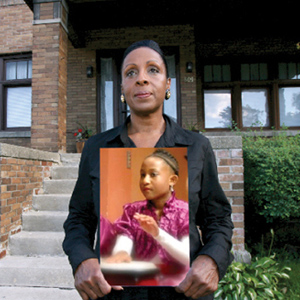
Mom in court for refusing to drug daughter, 13, with antipsychotic
WND – March 14, 2014 By Alana Cook Maryanne Godboldo endured a mother’s worst nightmare when in May 2011 police and social workers burst into…


WND – March 14, 2014 By Alana Cook Maryanne Godboldo endured a mother’s worst nightmare when in May 2011 police and social workers burst into…

By Kelly Patricia O’Meara March 11, 2014 Citizens Commission on Human Rights (CCHR) celebrated its 45th Anniversary and Human Rights Awards Banquet on February 1st,…

By Kelly Patricia O’Meara February 8, 2014 Citizens Commission on Human Rights (CCHR) celebrated its 45th Anniversary and Human Rights Awards Banquet on February 1st,…
The story of Maryanne Godboldo and how armed government agents broke down her door and attempted to kidnap her daughter because she wouldn’t feed her psychiatric drugs brings to light an important question: When is it justified to shoot back? I’ll explore both sides of this argument here and then share my own views. On the “shoot back” side of the argument, this woman had every right to defend herself against armed assailants who were engaged in acts of violence (breaking down her door) and who conspired to kidnap her daughter. In the legal world, the term “conspiracy” simply means more than one person was involved in planning the event. This was, without question, a conspiracy to kidnap a human being.
Detroit mother Maryanne Godboldo faces multiple felony charges and is being held on $500,000 bond after a 10-hour standoff with a heavily armed police SWAT team. Godboldo was protecting her 13-year-old daughter from unnecessary medication ordered by the state.Godboldo’s daughter was born with a defective foot that required amputation of her leg below the knee, which led to Maryanne becoming a stay-at-home mother after her birth, according to Health Impact News Daily.
Despite her handicap, the child swam, sang, danced and played the piano. However, as the home schooled girl approached middle school age, she apparently wanted to start attending public school, and therefore had to “catch up” on immunizations the state insists are required under color of law.